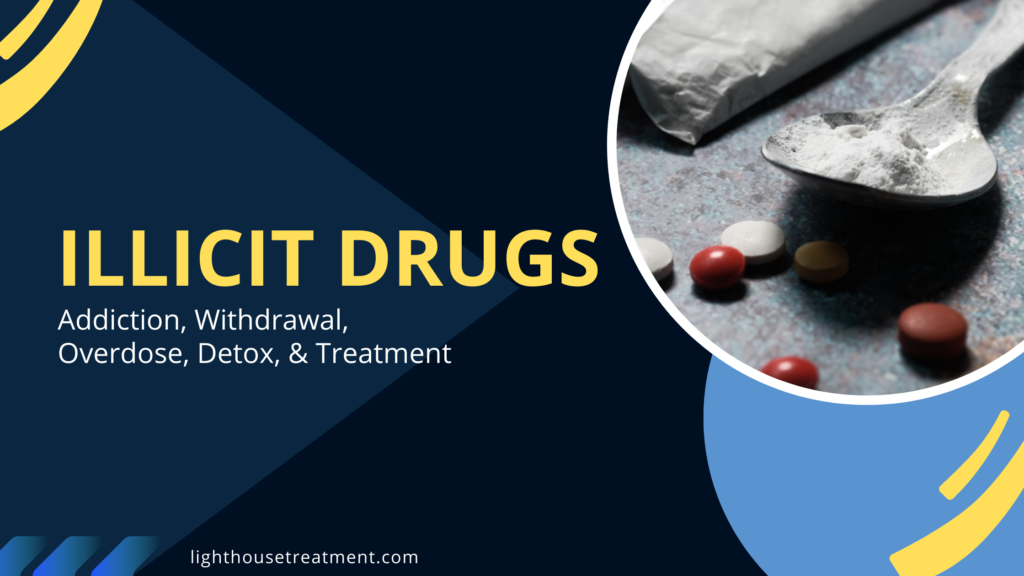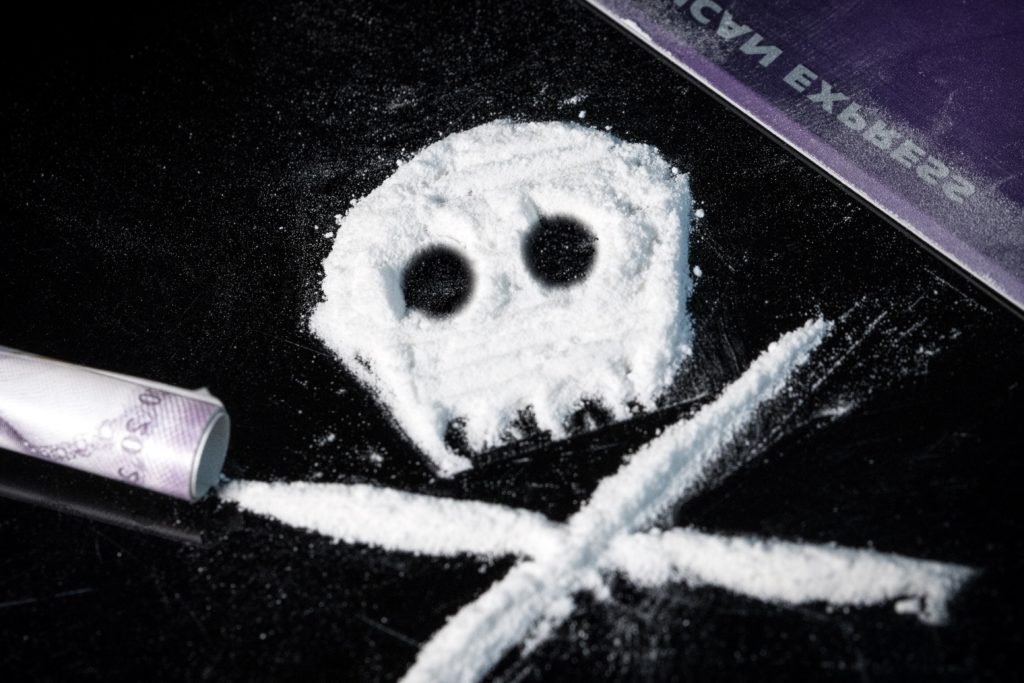What Are Illicit Drugs?
Illicit drugs are substances that are either 1) not prescribed, 2) taken more than the usual dose, and 3) taken with other drugs to increase the potency of their effects. Many are produced in chemical laboratories and generally have no accepted medical uses.
They usually affect the mental and cognitive faculties of a person. Users of these drugs often suffer social, psychological, and physical consequences when they become dependent on them.
Illicit drugs are not always illegal (forbidden by law) but it is subjected to dependency and abuse. Moreover, many illegal drugs are considered to be illicit.

Addiction to Illicit Drugs
People who use drugs do not necessarily become addicts but a great number of them are dependent on these substances for their sanity and quality of life. In the years since 2011, drug addiction has continued to rise–with the median of adult users between the ages of 25 to 50 years of age dying due to overdose.
Illicit drugs such as heroin, natural opioids, methadone, synthetic opioids, cocaine, and stimulants have become the leading causes of death in Americans under the age of 50.
Teenagers have also reported numbers of abuse at an early age that are often related to the prevalence of drugs in their local communities. In 2017, 50% of senior high school students admitted to using an illicit drug at least once. There are also high numbers for 10th (37%) and 8th graders (23%) who have dabbled and experimented with illicit drugs, the most common being alcohol.
In 2020, over 37 million Americans aged 12 and older used an illicit drug in the last 30 days. This is a testament of how severe the problem is in the United States.
Commonly Used and Abused Illicit Drugs
Cocaine – a highly addictive stimulant that is known in powdered form (powdered cocaine) and as a rock crystal smoked in heat. Cocaine alters the brain’s dopamine (a chemical responsible for movement, learning, and attention) neurotransmitter and cuts the user’s ability to emotionally respond normally.
Ecstasy – also known as MDMA, is a drug commonly seen in clubs. They come in the form of powder and colorful tablet varieties. Its effects last for 3 to 6 hours and are more physiological: muscle cramping, chills, and memory problems are just some symptoms. Long-term use affects the body’s ability to regulate temperature, sudden malfunction of the heart, kidney, or liver, and can even cause death.
Heroin – Derived from morphine, heroin is initially started as a treatment that developed into an abused drug. After taking the drug, its chemicals attach to opioid receptors and trigger the brain’s ability to differentiate pain from pleasure.
Inhalants – from the term itself, these substances that are inhaled and get a significant, volatile, and psychoactive reaction that can render users with drowsiness, dizziness, impaired judgment, and alterations in their behavior. Chemicals in these types of drugs target the blood vessels.
Methamphetamine – known as meth, is a laboratory-produced stimulant that boosts feelings of happiness and makes one feel energized. The substance’s peak effects last for at least 6 to 12 hours and leave the body just as quickly. This prompts users to increase intake to have another round of its effects.
Marijuana (Weed) – the most recognized drug from the cannabis plant that is made from dried leaves; it is either smoked, taken orally, or inhaled and contains the ingredient of THC that is responsible for its high on users.
Synthetic marijuana (K2/Spice) – a synthetic cannabinoid that has effects similar to marijuana but more potent with the possibility of being life-threatening. A regular dose for this drug is unknown because each manufactured batch of drugs is made differently.

What Causes Overdose? What To Do If Someone Is Overdosing
An overdose happens when there is too much of a drug in the system and the user’s body can no longer cope. The effects vary depending on the type of drug taken, how much was taken, and the user’s tolerance to the substance.
In most cases, an overdose requires emergency medical attention. If you believe someone is overdosing, call for medical help immediately.
Some signs that someone is overdosing include:
- slow or shallow breathing
- blue lips or fingernails
- erratic behavior
- vomiting
- seizures
- hallucinations
- loss of consciousness

How Do You Treat Illicit Drug Addiction? Detox & Treatment
While illicit drug addiction is a serious problem, it is important to remember that it is treatable. Detoxification and treatment are both key elements of overcoming addiction.
Detoxification, or detox, is the first step in treating addiction. During detox, individuals are rid of all drugs and alcohol in their system so that they can begin to heal physically and mentally. Detox can be done on an outpatient or inpatient basis, depending on the severity of the addiction. Having professional help can prevent painful withdrawal symptoms.
Treatment is the second step in overcoming drug addiction. It typically involves therapy, counseling, and support groups. Addiction treatment helps addicts identify the underlying causes of their addiction and learn new coping skills to deal with stressors and triggers.
We Accept Insurance







Don't See Your Provider? Contact Us To Confirm Coverage
- 123/B, Route 66, Downtown, Washington, DC 20004, US
- (855)-934-1100
- [email protected]
We Call You
Complete this secure form to receive a fast response from our support team.
Verify Your Insurance
Quickly confirm your coverage using our fast & easy verification system. We accept most insurances (and financing).




